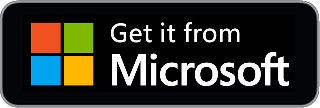Does RSS Cost Money?
RSS, or Really Simple Syndication, primarily operates as a free service, allowing users to access content updates from various websites. However, the landscape of RSS, especially when delving into advanced features or exclusive content, can introduce costs. This article explores the financial aspects of RSS, from its inherent free nature to the situations where you might need to open your wallet.
RSS: The Basics
RSS serves as a digital beacon, signaling fresh content from websites directly to its subscribers. It's a tool that aggregates updates, whether they're from blogs, news sites, or podcasts, and delivers them to users through an RSS reader, streamlining their online consumption.
The No-Cost Side of RSS
The foundational elements of RSS are rooted in its free accessibility:
- Universal Access: RSS is an open standard, meaning its basic technology doesn't come with licensing fees or hidden costs.
- Free for End-Users: Individuals using a feed reader or news reader to access and read rss feed updates typically don't face charges.
- Website Integration: Platforms like WordPress inherently support RSS, enabling site owners to offer feeds without incurring additional expenses.
Where Costs Might Creep In
While RSS's essence is free, there are scenarios where monetary aspects come into play:
- Premium RSS Readers: Some RSS reader apps offer free versions, but it's essential to remember that well-maintained software costs money. Thus, these apps often have premium counterparts with advanced features, enhanced customization, or an ad-free environment to support their development and upkeep.
- Exclusive RSS Content: A few content creators might reserve special content for RSS subscribers willing to pay a premium, blending the RSS format with a monetization strategy.
- Customized RSS Solutions: Websites desiring specialized RSS functionalities might face development and maintenance costs.
RSS: A Value Proposition
The potential costs associated with RSS are often offset by its inherent benefits:
- Direct Engagement: RSS eliminates middlemen, ensuring content creators engage directly with their audience without the interference of algorithms.
- Authentic Content Delivery: RSS promises unfiltered, chronological content, free from the whims of engagement-driven platforms.
- User Privacy: Unlike many platforms, RSS prioritizes content delivery without tracking user behavior or pushing targeted advertisements.
Concluding Thoughts
RSS, with its blend of free and potentially premium experiences, remains a valuable tool in the realm of digital content consumption. Its transparent, user-centric approach makes it a favorite among many. For those eager to experience the best of RSS, the Feed Viewer app stands as a beacon. Dive into the world of RSS with Feed Viewer, and immerse yourself in a curated world of content, tailored to your preferences.

